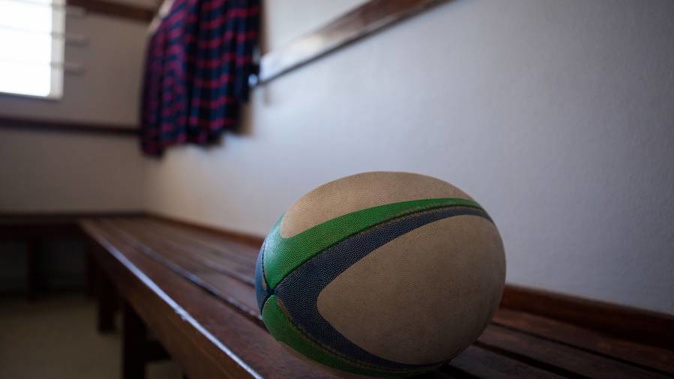
An investigation into illegal steroids has uncovered alleged widespread cheating in New Zealand sport, with up to 80 athletes allegedly caught up in a doping investigation.
The scope and results of the investigation are unprecedented and have the ability to tarnish the country's reputation as a "clean" sporting nation.
The athletes came the attention of investigators after their details were allegedly found in the database of a Christchurch man convicted and jailed for selling steriods via the internet.
They now face possible sanctions if found guilty of anti-doping rule violations. The Wada Code, which was updated on January 1, 2015, to allow for harsher penalties, offers a wide range of sanctions, which can be backdated.
As this offending captures the period between late 2014 and early 2015, so those who allegedly purchased in 2014 might be subject to lighter penalties than those in 2015. But, if found guilty of sporting violations, they won't face any criminal charges.
"It is a massive wake-up call," said New Zealand Sport CEO Peter Miskimmin.
The cases feature a range of sports, but it is understood that rugby players make up a significant portion – more than 40 per cent – of who now face potential sanctions.
No All Blacks or Olympians are among those caught in the sting, but it is understood some school-age athletes are.
The Weekend Herald can reveal the first case was heard this week and a decision could come as soon as next week. Because there is such a vast number of cases to be heard, the backlog is not expected to be cleared for at least six months.
To illustrate the scale of the investigation, in the last financial year Drug Free Sport New Zealand put eight cases before tribunals, some years they are as low as four. This sweep could net more than 80.
The cases come at an critical juncture in the fight against performance-enhancing drugs. Russia has been barred from next year's Winter Olympics in Pyeongchang – though clean athletes may compete as individuals – and national anti-doping organisations have been encouraged to take a hard line, partly to avoid any accusations of double standards.
It is in this context that the New Zealand Sports Tribunal and Rugby Judiciary will hear cases involving a large number of athletes who were recreational rather than serious sportsmen and women.
"Where we see evidence of a potential anti-doping rule violation (ADRV), we have an obligation to investigate it," said Nick Paterson, the chief executive of Drug Free Sport NZ. "We have to rigorously investigate cases and where we find evidence of an ADRV, we have to put that in front of the appropriate decision-making body."
DFSNZ has worked with athletes of all levels, but most often at the elite and just-blow-elite level. An investigation like this breaks new ground.
"A significant proportion of these cases may have had no anti-doping education from us," Paterson said.
The initial medicines investigation was initiated by medical regulatory body Medsafe.
It resulted in the arrest and imprisonment of Joshua Francis Townshend this year after he admitted to 129 charges under the Medicines Act. He was sentenced to two years at the Christchurch District Court.
Townshend was mixing, packaging and selling clenbuterol and other anabolic steroids from his Christchurch home, mainly through the website clenbuterol.co.nz. The site was shut down but not before information on his client database was made available to DFSNZ.
An initial sweep of the data netted representative cricketer Adam King and Hawkes Bay club rugby player Adam Jowsey. The cases were heard before the Sports Tribunal and Rugby Judiciary respectively and in both cases two-year bans were handed down.
A second sweep, however, uncovered dozens more alleged offenders, with more than 100 clients registered with national sporting organisations.
"We found a large number," Paterson said. "We have people across a good range of sports. We have levels of athlete from school and club level and upwards from there. We have male and female."
When pressed on whether any of those caught were professional or semi-professional sportsmen or women, Paterson said he could not talk about specific cases.
He did say, however, that beyond the rules violation, there was a "holistic" argument for taking the cases.
The products sold by Townshend, it was noted by Medsafe, fell well short of pharmaceutical standards.
"These people who purchased from the website literally had no idea what they were putting into their bodies," Paterson said. "For all we know the ingredients were mixed in a bathtub. If that's not a health risk, or a potential health risk, I don't know what is. How can you think that's okay?"
Miskimmin said the case showed New Zealand could not be complacent.
"What this demonstrates is we have people in our sport system and community who are prepared to take shortcuts, and that is not good," he said. "This exposes it and it highlights it."
On the flipside, Miskimmin noted, the raft of cases was evidence that if you cheat, you will be identified. The inter-agency approach to investigating anti-doping violations meant you did not have to return a positive test to face potential sanctions.
"It's very good that we can expose these things."
In a statement on the ministry website, Medsafe said Townshend was blatant in his advertising and promotion of the medicines and estimated that over one year he supplied the equivalent of 2100 10ml bottles of clenbuterol and approximately 2400 units of other anabolic steroids for injection.
Clenbuterol can be taken as a spray or injected intravenously. It is used to reduce body fat and increase muscle mass. It is used as both a performance enhancer and a vanity drug.
While many of those who appear before the tribunals may argue that they were just trying to look "cut", the rules make no allowance for that.
Take your Radio, Podcasts and Music with you









